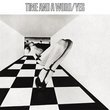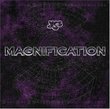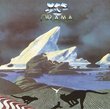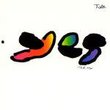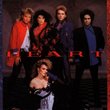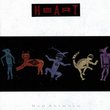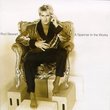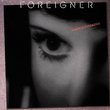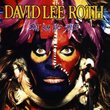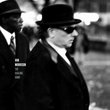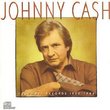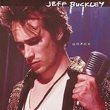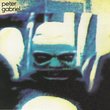| All Artists: Yes Title: Open Your Eyes Members Wishing: 6 Total Copies: 0 Release Date: 2/10/2009 Album Type: Import Genres: Pop, Rock, Classic Rock Styles: Progressive, Progressive Rock, Album-Oriented Rock (AOR) Number of Discs: 1 SwapaCD Credits: 1 |
Search - Yes :: Open Your Eyes
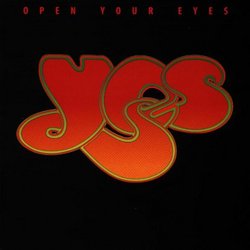 | Yes Open Your Eyes Genres: Pop, Rock, Classic Rock
Japanese Release Including A Bonus Track: Open Up Your Eyes (Radio Edit). |
Larger Image |
CD DetailsSynopsis
Album Description Japanese Release Including A Bonus Track: Open Up Your Eyes (Radio Edit). Similar CDs
Similarly Requested CDs
|
CD ReviewsOpening into Yes Prog Nerd | Southern California | 11/21/2009 (3 out of 5 stars) "I became a Yes fan in 1998, shortly before my 18th birthday. Open Your Eyes was the band's most recent studio effort, although it is ironic, because it was one of my last Yes purchases, along with Tormato and their first two albums. (I've since discovered that boxed sets are really nice ways of sampling material across a large discography that you may or may not like.) I found myself being mildly fond of the band's 1971-77 period, but heavily obsessed with 90125 and Drama (to the point of being disappointed that not every new Yes album sounded like these two, let alone Close To The Edge Part 2.) I also had a soft spot for about 2/3rds of Union.
I picked up Open Your Eyes used for about $3 in early 1999, and I'm glad I hadn't paid more, because aside from a couple tracks, it really didn't do anything for me at that time. Despite my love for 90125 (the album that hooked me onto Yes in the first place), I just couldn't get into this. Just as I couldn't get into Big Generator or Talk. (Again, aside from a couple tracks on each.) I listened a couple times, and then it went on my CD rack, where it collected dust for...literally years. In 2008, after since getting into dozens of prog bands, I decided to take a nostalgic look back at my love for Yes, who I had seen live many, many times by then, and thought maybe I had overlooked some of their works. I came across a revelation... Time really does heal all wounds. I loved all of the music I had previously disliked. Yes and Time And A Word? Lost Beatles albums. Tormato? Perfect for headphones as I walked along the beach. Big Generator and Talk? Yes albums I could actually play with the girlfriend in the car, and excellent soundtracks for a drive into LA. What I had discovered was Context, and the importance of When and Where you hear something, in addition to your frame of Mind when you listen. Because so many years had passed, I no longer carried the same prejudices and judgements that I once had; I only cared about if the music was good or bad. Because of my open-minded nature towards all music styles and genres (unlike a lot of prog fans, I'm actually progressive in my thinking), I was able to hold up the sparkling gem that is Yes, turn it in the light to just the right angle, and then have the "Aha!" moment as the sunlight refracted just perfectly. It didn't always come right away. It took work, and dedication. But I told myself...Well, if I truly love Yes and their music, and the beauty that they created (no matter what one's favorite is), then I owe it to them to keep trying, keep watching, keep listening. Some things don't reveal themselves right away. Open Your Eyes was much, much better than I had remembered. The first two tracks are expertly loaded front-and-center for a reason, as these are certainly the best two on the album. "New State of Mind" has a wonderfully Zeppelinish sound to it, and Howe has an amazingly smooth and ambient guitar outro to finish it off. "Open Your Eyes" got a bit of radio play here in the LA area, and it should've been at least a classic rock FM hit, because it's very catchy, has an uplifting chorus, wonderful back and forth harmony vocals shared between Anderson, Squire and Sherwood, and Steve Howe's presence is clearly heard with some fast-paced and fluid soloing. This is the most representitive song on the album. "Universal Garden" is the longest track at 6:18, and sounds a little forced, but is otherwise great listening for going outside on a summer night and looking up at a clear sky. "No Way We Can Lose" is one of my least-favorites on the record, as the lyrics are incredibly bland (as well as the ho-hum countryish bent to the music.) It sounds as if the band was trying to do another "Your Move", but failed. It's not terrible, but just has a very whitebread vibe to it. (Amazingly, this song was the second single from OYE, and I distinctly remember hearing it at least a few times on the radio.) "Fortune Seller" gets things moving again, with some nice jazzy keyboard playing courtesy of new keysman Igor Khoroshev, who would join the band on live dates and become a fulltime member for The Ladder at the end of the millennium. "Man In The Moon" is another relatively weak song, with a plodding rhythm and simple verse, but it has some nice pieces tucked in there. Chris Squire handles lead vocals on this one. "Wonderlove" features some sitar work from Howe, and gives off an almost classic Yes vibe before the song changes and things speed up. "From The Balcony" is a stripped-down, simple acoustic song featuring only Anderson and Howe. The lyric and music is a bit too simplistic and cloying for my tastes, although I've grown to appreciate it. This melody would be re-worked for "Soft As A Dove" on the 2001 Magnification album. "Love Shine" comes in with a sparkling, chiming keyboard intro before we're led back into AOR territory, a bit too abrupt after the naked beauty of the previous track. I would think that a track reordering would be wise in this instance. "Somehow, Someday" is next, with Anderson reworking some older lyrics into a not-quite-successful update, featuring some "City of Love"-style stop-start bass and guitar crunch. "The Solution" ends the album on a high note, of which Steve Howe's guitar work is very reminescent of 1980's Drama. A hidden ambient track starts after a few minutes, featuring over twenty minutes of ocean waves, wind chimes, birds, crickets, and a bit of sitar. It would've been a nice relaxing track to fall asleep to if it wasn't for the jarring vocal samples. Overall, this is a mixed bag, and certainly among Yes's weakest albums, but for dedicated fans willing to give it another chance, it provides a respite from the tedium of listening to Fragile for the 1,245th time. It's quite obviously overproduced (too many overlaid vocal harmonies throughout much of it), and the keyboard patches are just as cheesetastic as Wakeman's from the Keys studio tracks. Steve Howe is here in a more cut-and-paste pastiche, although you'll get a smile at the times when you do hear him cut through with a blazing solo here and there. Billy Sherwood's influence is highly felt, bith in the songwriting, lyrics and production, but if you have a liking for his Yes-lite style, then you'll find it okay. Alan White has some good fills and rhythms here and there, but nothing substantial. Jon Anderson isn't here in his usual sense, although I really do prefer a break from his abstract and cosmic lyrics at times. This is one of those times. Chris Squire is the one person who probably stands out the most, with lots of quirky, bubbly and chunky bass playing. His Rickenbacker sound is highly apparent, and provides an excellent foundation to the straightforward pop/rock AOR sound of the album. I'm unsure as to how to recommend this. It could actually be a good First Yes Album for somebody, because they would be free from the shadows of their 70's masterpieces and just enjoy it as a good pop/rock driving soundtrack. But it might possibly be good if someone is into 90125, Big Generator, Union, or Talk, as well. Or you can just forget it says "Yes" on the cover and just enjoy it as if it's another band entirely. Believe it or not, that sometimes helps. Overall, the vibe on Open Your Eyes is somewhere between the Beatles'ish debut and Time And A Word (reflected in the artwork with a black on orange Yes logo -- just like the debut -- and a nice touch after almost thirty years of recording), and the 1983-1995 Yes sound (90125 through Talk), with a few very small and subtle reminders of The Yes Album, Close To The Edge and Going For The One. Open Your Eyes is sort've a sandwich, with 1969 and 1999 being bookends for a short, concise, uplifting and positive middle. It's a little processed and Velveeta, but really good if you're hungry. Key tracks: "New State of Mind", "Open Your Eyes"" |

 Track Listings (11) - Disc #1
Track Listings (11) - Disc #1